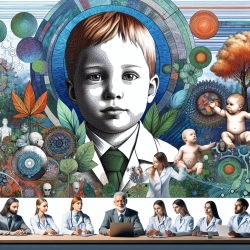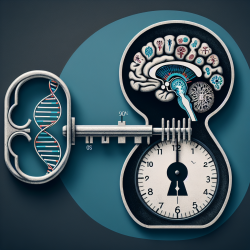Understanding the Intersection of Political Ecology and Mental Distress
The study titled "Psychoactive substances and the political ecology of mental distress" by Aggarwal et al. (2012) provides a unique perspective on the intersection of psychoactive substances and mental health. This research uses a framework known as the critical political ecology of health and disease to challenge traditional understandings of mental disorders related to substance use. As practitioners in speech-language pathology, it is essential to consider how these insights can enhance our practice, particularly when working with children who may be affected by these broader social and environmental factors.
Implications for Practitioners
Understanding the political ecology of mental distress involves considering the broader social, economic, and historical contexts that influence health-related phenomena. For speech-language pathologists, this means acknowledging that children's communication disorders may not solely be the result of individual pathology but could be influenced by larger systemic issues. By integrating this perspective into our practice, we can better tailor our interventions to address the root causes of communication difficulties.
- Holistic Assessment: Incorporate questions about the child's environment, including exposure to stressors related to psychoactive substances, into assessments.
- Interdisciplinary Collaboration: Work with other professionals to address the socio-economic factors affecting the child's communication abilities.
- Advocacy: Advocate for policies that reduce the negative impacts of socio-political factors on children's mental health and communication development.
Encouraging Further Research
Practitioners are encouraged to delve deeper into the research on political ecology and its implications for mental health. By understanding the historical and socio-political contexts of substance use and mental distress, speech-language pathologists can develop more comprehensive and effective intervention strategies. Further research can also help in identifying specific socio-environmental factors that significantly impact communication disorders in children.
Conclusion
Integrating the principles of political ecology into speech-language pathology offers a promising avenue for improving outcomes for children. By considering the broader socio-political contexts of mental distress, practitioners can develop more holistic and effective interventions. To read the original research paper, please follow this link: Psychoactive substances and the political ecology of mental distress.










